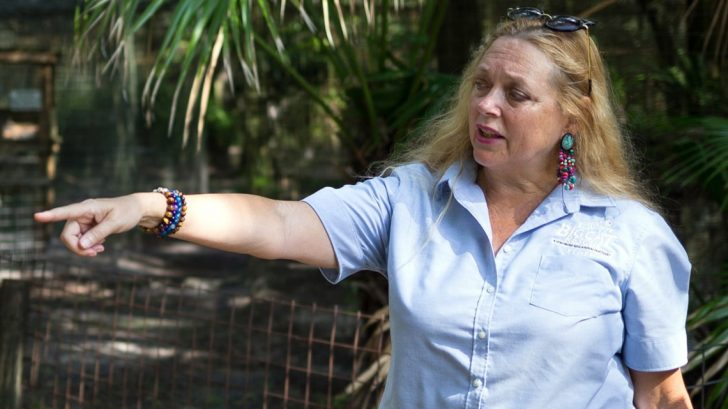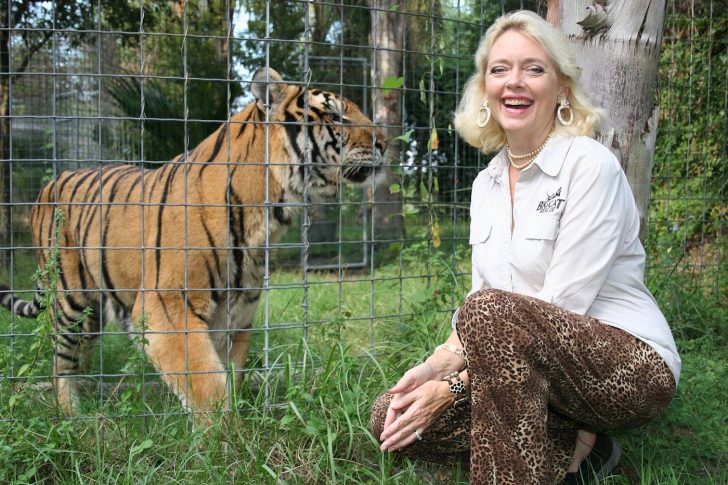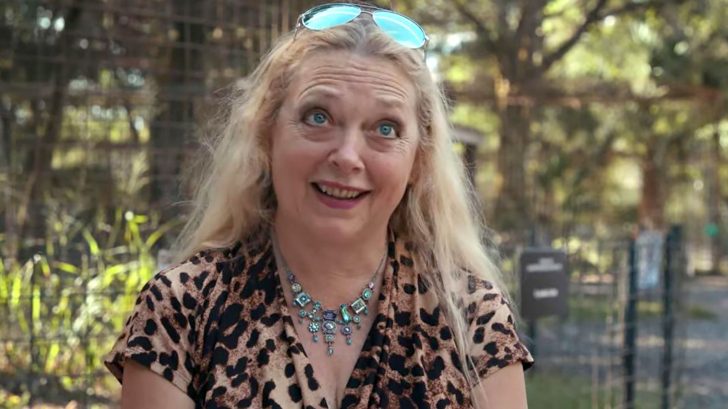Carole Baskin, known for her role in the explosive Netflix series “Tiger King,” has taken her legal battle to the Florida Supreme Court. In a move that underscores the complexities of defamation law and freedom of speech, Baskin is challenging an appellate court decision that could have significant implications for her. This twist in the ongoing saga adds another layer to the multifaceted narrative that has captivated millions worldwide.
At the heart of this legal skirmish is a defamation lawsuit brought against Carole Baskin by Anne McQueen, her late husband's former assistant. The crux of the matter lies in Baskin's public allegations against McQueen, accusing her of embezzlement. These accusations were not whispered in secret corridors but broadcasted to the world through YouTube and a website in 2020, amplifying their reach and impact.

GTN / The defamation lawsuit is brought by her late husband’s former assistant, Anne McQueen.
The Battle for Free Speech
Carole Baskin's defense pivots on the principles of free speech. She contends that her statements, disseminated through modern digital platforms, are shielded by the same protections traditionally afforded to newspapers and broadcasters. This perspective raises intriguing questions about the evolving nature of media and the boundaries of free speech in the digital age.
The legal journey has been a rollercoaster for Baskin. Initially, a trial judge sided with her, recognizing her as a “media defendant” and thereby extending protections under free speech laws. However, the plot thickened when an appellate court reversed this decision, narrowing the scope of what constitutes protected speech and who qualifies as a media defendant.
A Crucial Appeal From Carole Baskin
Carole Baskin's appeal to the Florida Supreme Court is not merely a fight for her personal vindication but also a testament to the ongoing dialogue about freedom of speech, media rights, and the digital dissemination of information. Her case underscores the challenges and nuances of applying traditional legal frameworks to the modern digital landscape.

Elle / While Carole Baskin was recognized as a “media defendant” early on, an appellate court reversed the decision.
It is impossible to discuss Carole Baskin without acknowledging the cultural phenomenon that is “Tiger King.” The documentary series, which delves into the eccentric world of big cat conservation and the colorful characters that inhabit it, has thrust Baskin into the limelight.
Her feud with Joseph Maldonado-Passage, aka “Joe Exotic,” adds a dramatic backdrop to the current legal proceedings, illustrating the complex web of personal and legal battles that define her public persona.
Beyond the Gavel
Carole Baskin's journey from “Tiger King” antagonist to “Dancing With The Stars” contestant illustrates her transformation into a pop culture mainstay. Her legal battle transcends personal interest, touching on broader issues of media rights, digital expression, and the evolution of free speech protections.

OK Magazine / As the Florida Supreme Court considers her appeal, the outcome could have far-reaching implications for how defamation is understood and litigated in the digital age.
The Florida Supreme Court's decision on Carole Baskin's appeal will be closely watched by legal experts, media professionals, and the public alike. Beyond the particulars of Baskin’s case, this decision could set a precedent for how digital communications are governed by defamation law, potentially reshaping the landscape of free speech in the digital era.
A Crying Call for Reflection
Carole Baskin's legal odyssey invites us to reflect on the changing dynamics of media, the power of digital platforms, and the enduring importance of safeguarding free speech. As we await the Florida Supreme Court's ruling, one thing is clear: the implications of this case extend far beyond the gates of a big cat sanctuary.
They touch upon fundamental principles that underpin our society, highlighting the delicate balance between freedom of expression and the protection against defamation.




